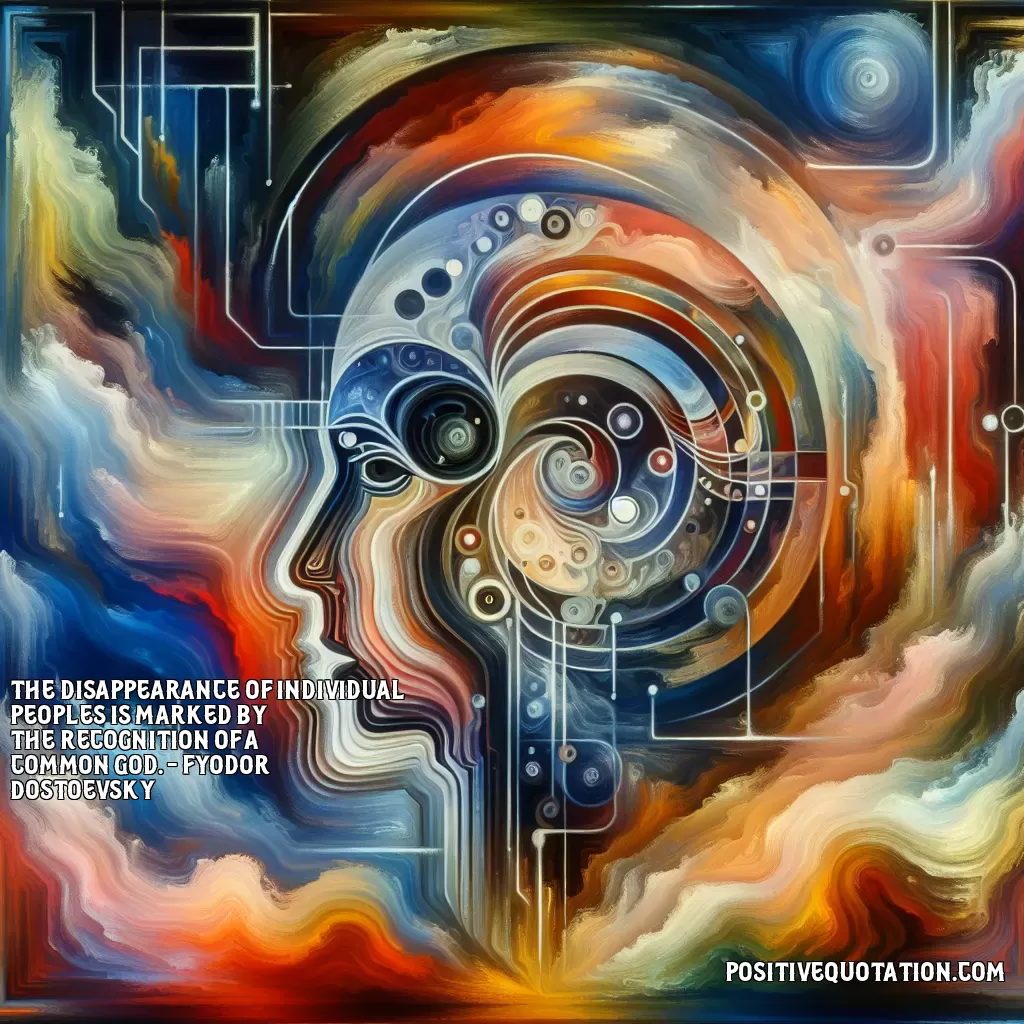
The disappearance of individual peoples is marked by the recognition of a common God. - Fyodor Dostoevsky

The disappearance of individual peoples is marked by the recognition of a common God. - Fyodor Dostoevsky
Fyodor Dostoevsky's quote, "The disappearance of individual peoples is marked by the recognition of a common God," offers a profound commentary on the interplay between cultural identity and universal spirituality. Dostoevsky, known for delving deep into the human psyche and existential themes, suggests that the identity of distinct cultural groups—what he terms as "individual peoples"—diminishes when humankind collectively embraces a single, unifying deity. This idea can be interpreted in several ways. Historically, many civilizations thrived on their unique customs, languages, and religious practices, which defined them as distinct entities. However, when these civilizations encounter or adopt a monotheistic belief system—a "common God"—there's often a tendency for these unique cultural attributes to either blend into or be replaced by the overarching tenets of the new faith. For example, the spread of Christianity and Islam shows how individual pagan or polytheistic societies transformed under the influence of these religions. The shared belief in one God can foster a unity that transcends cultural and national barriers, sometimes at the cost of erasing the unique characteristics that once defined various groups. Moreover, this quote can be seen as a reflection on globalization and the modern world, where a move towards global ideologies and common belief systems can lead to the homogenization of cultural identities. As people begin to identify more with a wider community through a shared belief, the distinctiveness of their original culture might fade away. In essence, Dostoevsky captures a tension between the universal and the particular: the drive towards unity and understanding through a common God versus the desire to preserve the rich diversity of individual peoples. This insight prompts us to ponder the value of cultural uniqueness in a world that increasingly leans towards universality.
Quote By: Fyodor Dostoevsky
Fyodor Dostoevsky was a renowned Russian novelist and philosopher, born on November 11, 1821, in Moscow. His works, including "Crime and Punishment," "The Brothers Karamazov," and "The Idiot," delve into complex themes of morality, free will, and the human condition, reflecting his own struggles with poverty and existential despair. Dostoevsky's literary contributions have had a profound impact on literature and psychology, establishing him as a pivotal figure in world literature, and he passed away on February 9, 1881, in St. Petersburg.
Bio added on: 2025-02-15 16:55:50